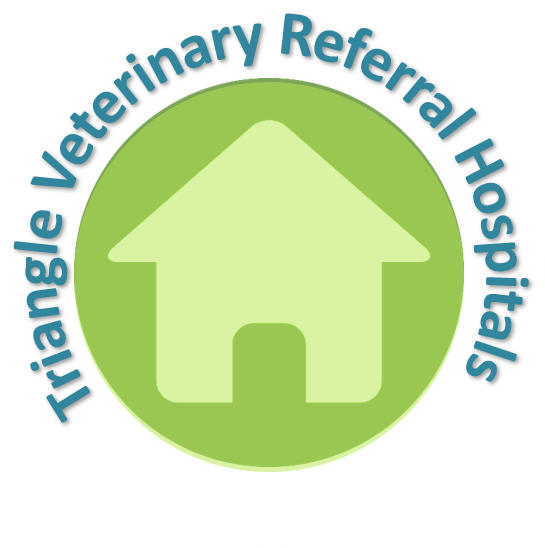Outpatient Ultrasound information for PET OWNERS
Your primary care veterinarian has recommended an outpatient ultrasound at TVRH. The purpose of the Outpatient Ultrasound Service is to provide high quality ultrasound examinations performed by a Board-Certified Radiologist to patients in a timely, convenient, and cost-effective manner. We strive to provide seamless continuity of care between your primary care veterinarian and our board certified specialists to ensure your pet gets the best care possible!
Frequently Asked Questions:
What is ultrasound?
Ultrasound is a non-invasive method for imaging the body using very high pitched sound frequencies (higher than the human ear can hear). Ultrasound is commonly used in both veterinary and human medicine for a wide variety of problems, including diseases of the liver, spleen, kidneys, bladder, adrenal glands, stomach, intestines, pancreas, reproductive tract, heart (often referred to as “echocardiography”), neck, thorax, and muscles/tendons. Ultrasound is less useful for imaging structures like bone or air-filled structures like the lung.
Is ultrasound safe?
Yes, ultrasound is very safe. The main benefit of ultrasound is that it can provide useful information about the body without invasive surgery, injection of dyes, or ionizing radiation. You may be most familiar with ultrasound due to its common use in the imaging of women during pregnancy.
What happens during an ultrasound?
During an abdominal ultrasound, the patient is usually placed on their side or back. The hair on the underside of the belly will be shaved and a gel will be applied to the skin. The images are obtained by placing the transducer (a smooth, handheld object, similar in size and shape to a small TV remote control) on the patient's skin and slowly moving the transducer around on the skin.
How long does the examination take?
Most exams take approximately 30 minutes. Due to the nature of TVRH’s Emergency Service and hospitalized critical patients, sometimes a more critical case may take priority and your pet's exam may need to be delayed for a short period of time. However, this is a rare event, and usually only results in a 15-30 minute delay.
Can I be present during the examination?
Unfortunately, we are unable to allow owners to be present in the ultrasound room.
Are there any situations where I should NOT use this Service?
The Outpatient Ultrasound Service is reserved for stable pets whose condition is such that they can return home or to the primary veterinarian for further care. Animals that are very ill or whose condition is deteriorating should be cared for through the other services offered at TVRH (Emergency, Internal Medicine, Surgery, etc.). Similarly, pets who have an anxious or aggressive nature may need to be sedated prior to the exam, and oral or injectable sedation may be required. If you believe your pet may require oral or injectable sedation prior to the ultrasound exam, please contact us or your primary care veterinarian to discuss these options. Ultimately, we want to provide the best possible care for your pet, and we will work with you and your primary veterinarian to provide that care.
Is there anything I need to do to prepare for the ultrasound? Your pet will need to be fasted for at least 12 hours prior to the exam. This is because the presence of food within the gastrointestinal tract will prevent complete evaluation of the abdomen. Please contact us or your primary care veterinarian if you are concerned about withholding food. Additionally, many pets may benefit from oral sedation prior to the ultrasound examination. If your pet normally receives oral sedation prior to veterinary visits or if you believe your pet may benefit from this, please contact your primary care veterinarian to discuss these options.
When will I find out the results from the ultrasound? The ultrasound report will be sent to your primary care veterinarian no later than one business day following the ultrasound examination. Your primary care veterinarian will then contact you to discuss the results along with any recommendations they may have regarding treatment or additional diagnostics. No consultation or direct reporting of the results will occur during your visit to TVRH unless the ER Service takes over the case to administer injectable sedation or provide additional care.
Thank you again for allowing us to be part of your pet's health care! Please do not hesitate to contact our hospital with any questions.






